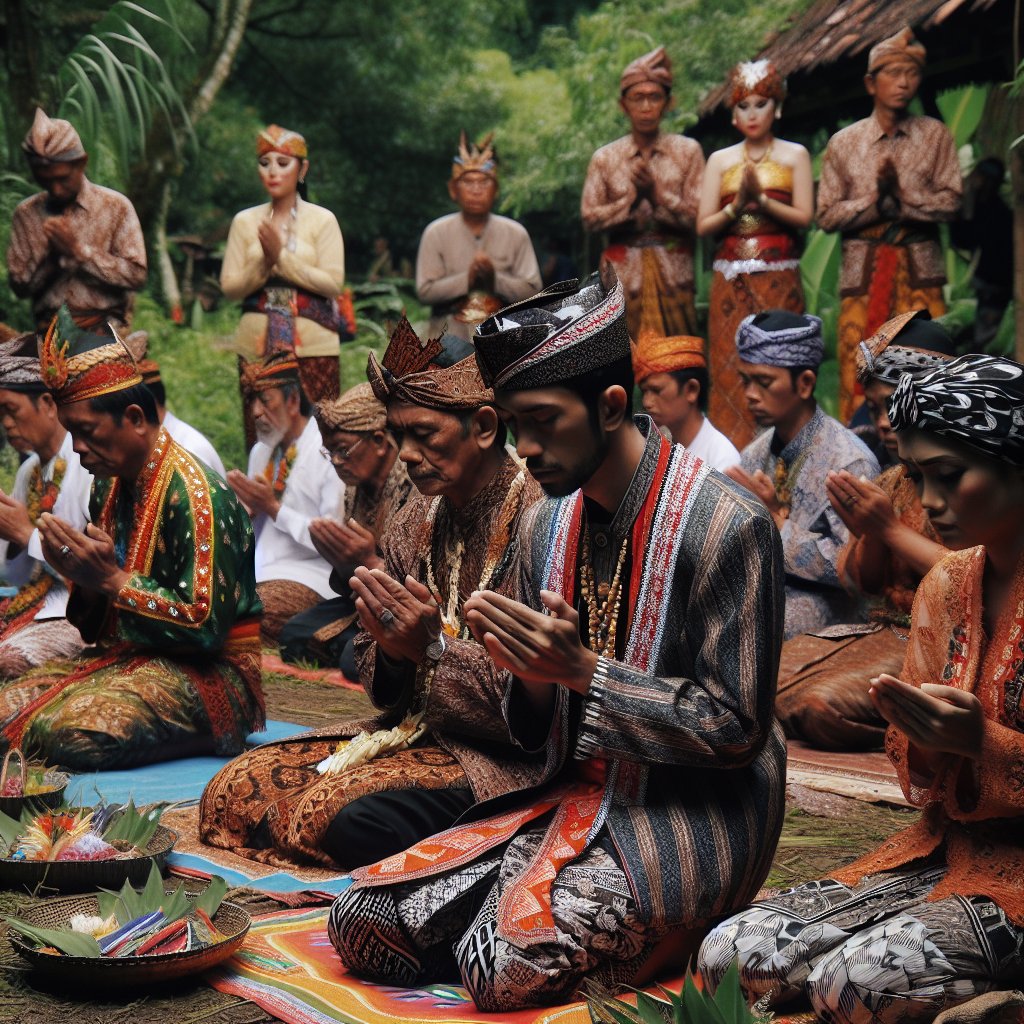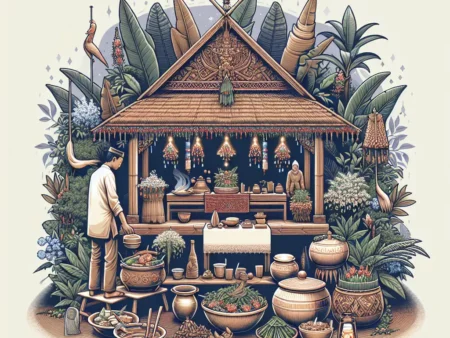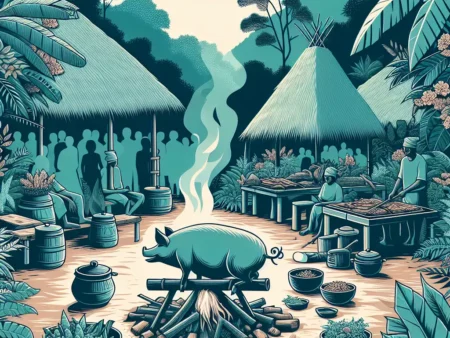Tradisi Rebo Wekasan adalah upacara Tolak Bala yang dilakukan di Jawa untuk mengusir keburukan dan mendatangkan keberuntungan.
Tradisi Rebo Wekasan: Upacara Tolak Bala di Jawa
-
Table of Contents
Introduction

Indonesia is a country rich in cultural traditions and customs. One such tradition is the Rebo Wekasan ceremony, a unique ritual that is performed in Java to ward off evil spirits and bring good fortune to the community. This article will delve into the history, significance, and practices of the Rebo Wekasan ceremony, shedding light on this fascinating aspect of Indonesian culture.
The Origins of Rebo Wekasan
The Rebo Wekasan ceremony has its roots in Javanese mythology and folklore. According to legend, the ceremony was first performed by the ancient Javanese kingdom to protect its people from various calamities, including diseases, natural disasters, and other misfortunes. Over time, the tradition evolved and became an integral part of Javanese culture.
Significance of the Ceremony
The Rebo Wekasan ceremony holds great significance for the Javanese people. It is believed that performing this ritual can help ward off evil spirits and bring blessings to the community. The ceremony is typically conducted on a Wednesday, which is considered an auspicious day in Javanese culture. It is believed that by performing the ceremony on this day, the community can ensure protection and prosperity for the rest of the week.
The Rituals and Practices
The Rebo Wekasan ceremony involves a series of rituals and practices that are meticulously followed by the participants. The ceremony usually takes place in a village or a community center, where the entire community gathers to participate. The rituals are led by a spiritual leader or a village elder who is well-versed in the traditions and customs associated with the ceremony.
One of the key rituals of the Rebo Wekasan ceremony is the offering of prayers and incense to the spirits. Participants gather around an altar adorned with flowers, fruits, and other offerings. They chant prayers and light incense sticks, symbolizing their devotion and respect for the spirits. The smoke from the incense is believed to carry their prayers and offerings to the spiritual realm.
Another important aspect of the ceremony is the performance of traditional dances and music. The participants dress in traditional Javanese attire and perform intricate dance routines accompanied by traditional musical instruments such as the gamelan. These performances are not only a form of entertainment but also a way to invoke the spirits and seek their blessings.
Relevance in Modern Times
Despite the rapid modernization and globalization of Indonesia, the Rebo Wekasan ceremony continues to hold great importance in Javanese society. Many communities still faithfully perform the rituals and practices associated with the ceremony, passing down the traditions from one generation to another. The ceremony serves as a reminder of the rich cultural heritage of Java and the deep-rooted beliefs of its people.
Preserving Cultural Identity
In addition to its spiritual significance, the Rebo Wekasan ceremony plays a crucial role in preserving the cultural identity of the Javanese people. It serves as a platform for the younger generation to learn about their traditions, customs, and values. By actively participating in the ceremony, they develop a sense of pride and belonging to their cultural heritage.
Tourism and Cultural Exchange
The Rebo Wekasan ceremony has also become a popular attraction for tourists visiting Java. Many travelers are drawn to the unique cultural experiences offered by the ceremony, providing an opportunity for cultural exchange and understanding. This not only benefits the local economy but also promotes cross-cultural dialogue and appreciation.
Conclusion
The Rebo Wekasan ceremony is a testament to the rich cultural diversity of Indonesia. Its origins in Javanese mythology, the significance it holds for the community, and the rituals and practices associated with it make it a fascinating tradition to explore. Despite the challenges posed by modernization, the ceremony continues to thrive, preserving the cultural identity of the Javanese people and serving as a bridge between the past and the present. The Rebo Wekasan ceremony is not just a ritual; it is a symbol of the resilience and deep-rooted beliefs of the Indonesian people.







